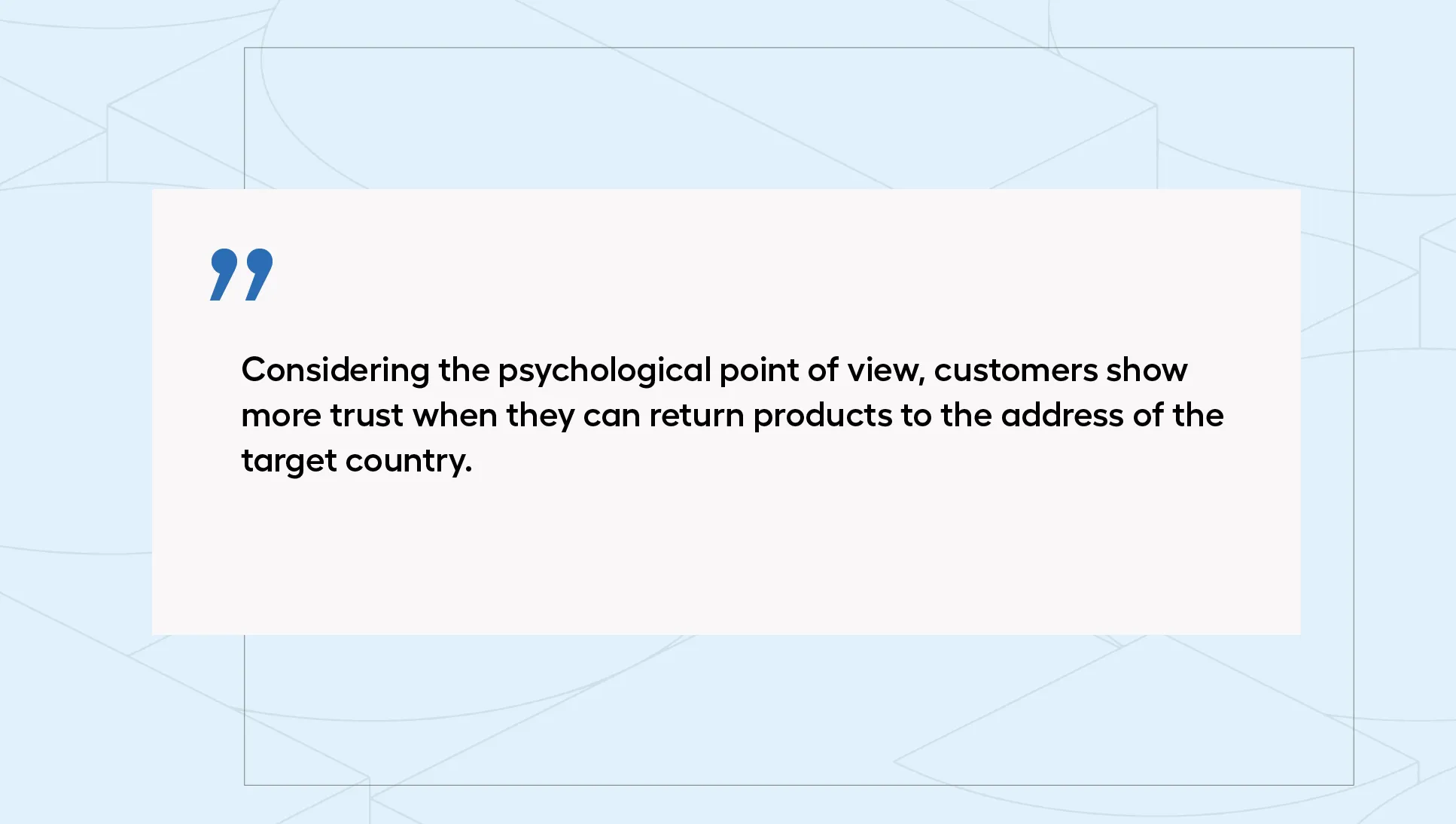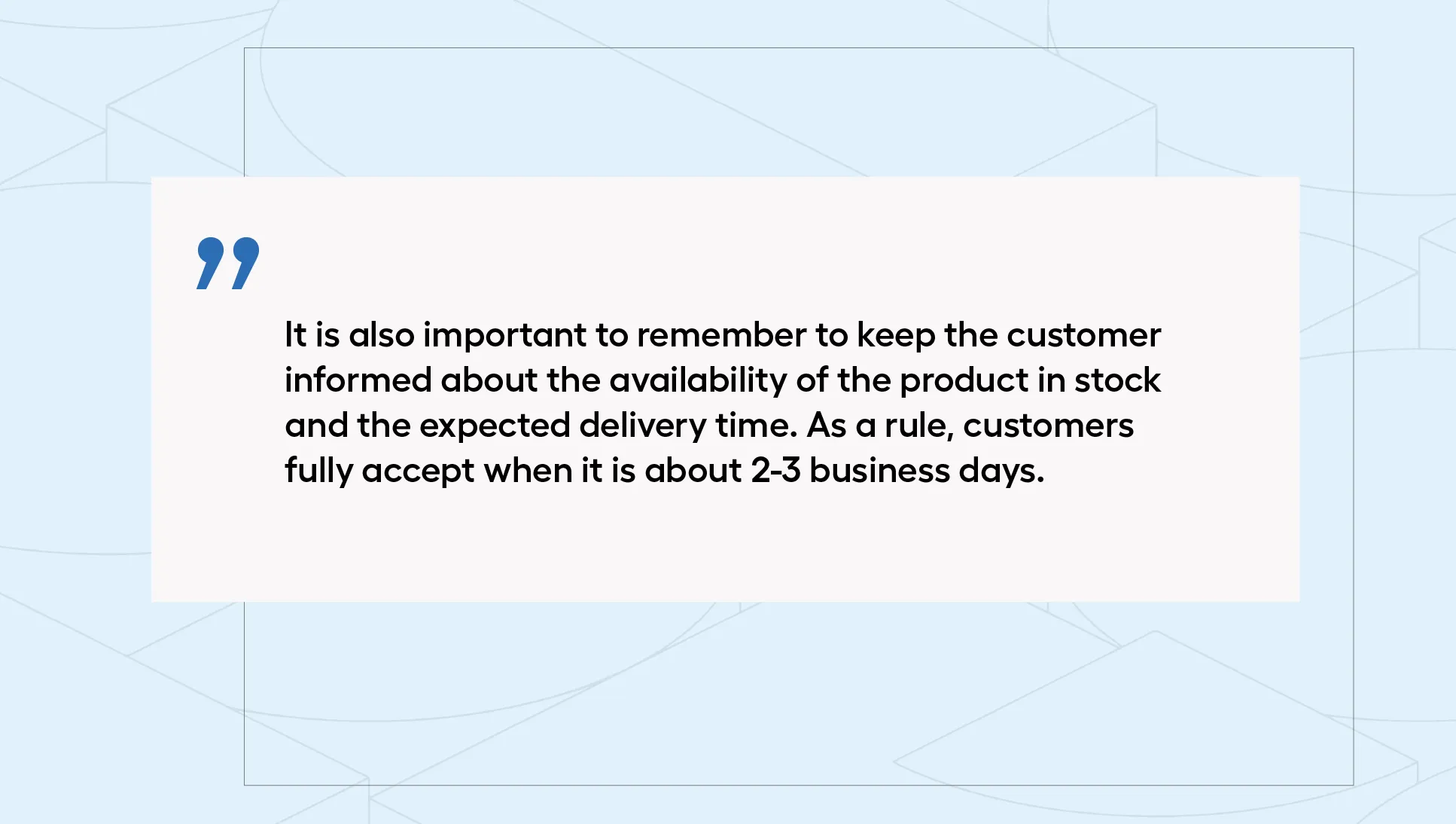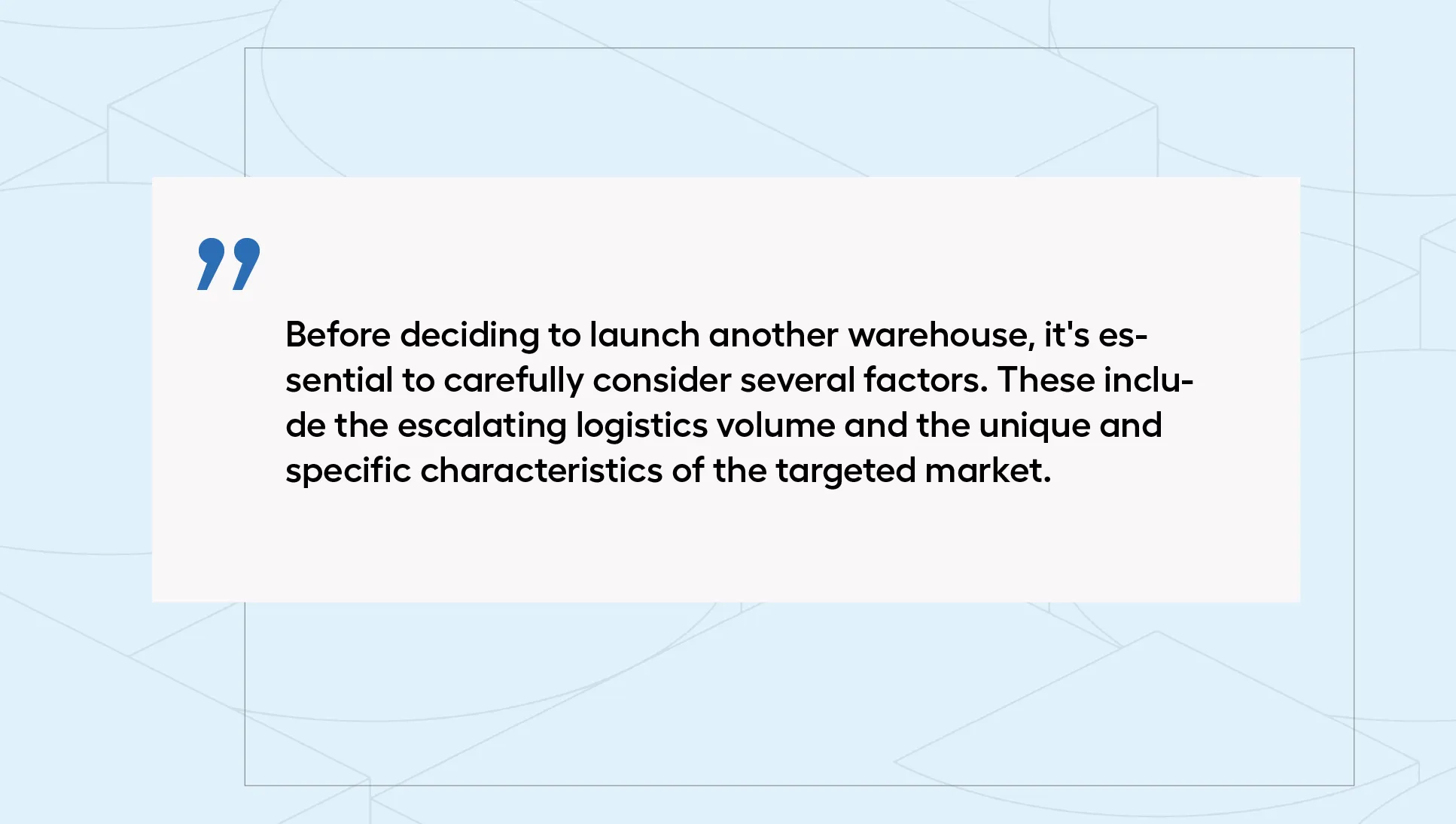Talking about cross border commerce part III. Cross-border sales through the eyes of logistics company Arvato
When thinking about cross border commerce, surely one of the first thoughts that will come to your mind will be the multi-mile distances a shipment will have to travel to reach the end customer. Managing international logistics is one of the biggest challenges in the early days of overseas online sales - especially given that customers expect ever faster deliveries and the ability to pick up their order at any time while keeping costs as low as possible. From a logistics point of view, however, achieving such results requires, however, knowledge of the industry, its specialized solutions, and tools, as well as the specifics of the country to which you are targeting sales. On these topics, we talk to Arvato expert Przemyslaw Klich in the next part of our series on foreign expansion in e-commerce. Are you curious about how to effectively carry out logistics activities when selling abroad? We encourage you to read on!
Check out what else you should pay attention to in order to succeed in cross border commerce
- Competition analysis with Dealavo
- Work organization in international eCommerce - an interview with Jarosław Uczkiewicz
Przemysław Klich: At the beginning, you need to determine whether you will make overseas sales through your own e-store or through a marketplace, as this definitely determines the logistics service.
In the first stage of foreign eCommerce expansion, I recommend signing favorable agreements with freight forwarding and courier companies and conducting international shipping from a warehouse located in Poland (when our country is the main market). When shipping several hundred foreign orders per day, you can consider the so-called line haul option, in which a dedicated transport will deliver packages to a foreign courier hub, and further shipment will be carried out taking into account the local rates of the destination country.
The second option is to cooperate with a logistics operator, such as Arvato, which will comprehensively carry out all warehouse operations and shipping to other countries. Such a service is provided very often at more favorable courier rates or with the aforementioned line haul option (especially for the largest markets, such as Germany).
Finally, we should also mention marketplaces, which are a good option at the beginning of the business, when you want to test the interest in the given products in the market without worrying about logistics handling. However, if you want to build your own brand and have a direct relationship with customers, it is worth using your own website.
RG: What about the situation when the owner of an online store does not have warehouses in the country - how to resolve returns in such a case?
PK: When providing warehouse service in Poland for a project that makes sales to other countries, we can offer returns to one of our logistics centers - Arvato has logistics warehouses in many countries in Europe and beyond. Then, depending on the needs (e.g., twice a week), all parcels are accumulated and sent back to Poland, where the standard handling process takes place.
The second option is to work with courier companies, where the seller gains the ability to provide a return address to the shipping hub, and just as in the first version, the packages are returned again to the warehouse in Poland.
Regardless of the choice, there are two main benefits in each case. Considering the psychological aspect, customers show more confidence when they can return products to the address of the destination country. In addition, such a solution involves a reduction in costs, since domestic shipping is simply cheaper than foreign shipping.

RG: On the other hand, how are fiscal aspects? For example, does Arvato have the ability to provide receipts for other countries?
PK: We follow the guidelines of our customers and try to be flexible in our daily operations. However, it should be borne in mind that we are not a party to the business and it is the e-store that makes the decision on the fiscalization of sales (receipt, invoice, or perhaps electronic documents). Of course, our integration with supported businesses also includes the printing of sales documents, which we implement as part of the process.
RG: Therefore, can the logistics operator customize the shipment for a particular country, such as including manuals in a particular language?
PK: As part of our warehouse service, we personalize the packaging process accordingly, agreeing on the needs of a particular country or sales direction. As part of VAS (Value Added Services), we offer, among other things, the possibility of: inserting packages with indicated documents (including instructions), uploading for Tech products the appropriate programming or language, as well as replacing chargers or network plugs dedicated to a particular region.
However, it is a separate matter to sort the prepared packages into a specific direction and service by courier companies. In this case, we recommend to our customers the most favorable option, taking into account all rates, dimensions, delivery time, as well as the so-called "cut off" (hours in which we give orders to the courier company).
RG: It is claimed that in many cases shipping international packages discourages customers from ordering abroad. Is this actually the case?
PK: As a general rule, shopping in another country (and especially in an online store whose brand is not yet recognized in the target country) always involves some concerns. Therefore, the customer should be taken care of already at the stage of preparing the e-shop - take care of the appropriate language of the site (at least universal English), as well as the availability of local forms of payment and delivery. Also remember to keep the customer informed about the availability of the product in stock and the expected delivery time. As a rule, customers fully accept when it is about 2-3 business days. Another aspect I mentioned earlier is to allow returns to the destination country address. This helps build trust in the brand, and also minimizes the cost of sending products back.

RG: What markets does your company serve? What if you do not have your own warehouse in any of these target markets?
PK:From Poland, we usually serve the neighboring countries. Equally often we cooperate with the DACH and Benelux countries (they generate a large particularly large number of orders) and the southern part of Europe. We have logistics centers in Poland, Germany, the Netherlands, Austria, France, Spain, Italy or the UK, among others. When building a supply chain for customers, we pay attention to line haul to our other branch or courier hub, and to establish a local address for returns in those countries where sales are highest.
In the case of very large volumes, it is worth thinking about setting up another warehouse to serve the more remote parts of Europe, thus speeding up parcel delivery times. However, it should be borne in mind that setting up another logistics center is associated with high costs.
RG: How does the integration with the e-store look like?
PK: First of all, when implementing a new project, we carry out the integration of the online store system with Arvato's logistics system. In addition, we manage Arvato's TMS (Transport Management System) platform, which connects most of the recognized courier companies in Europe.
During the entire logistics handling process, Arvato performs several functions: it is the fulfillment operator, can manage the transportation department, and is also responsible for integration between IT systems, including marketplaces.
RG: It has been a well-established belief that overseas expansion requires launching another warehouse? Is it actually necessary in the first months of operation?
PK: The multiplication of a warehouse should be approached rationally, because in Western Europe the costs of service, as well as warehouse space, are more expensive than in Poland. That's why the decision to launch another warehouse must, above all, be well thought out. It should take into account the increasing logistics volume, as well as the specific and unique nature of the market in question. A perfect example of this are products from the pharmaceutical industry, which in many cases must be delivered within a maximum of 24 hours of ordering.
In conclusion, when starting a business, I recommend setting up a professional warehouse in Poland, either on your own or with an experienced outsourcer such as Arvato. As part of the cooperation, we provide comprehensive logistics services in our country, and also have a network of warehouses in Europe, the US and Asia.

Logistics in cross border commerce nailed down - what's next?
Conducting logistics activities in an effective manner in foreign sales does not end only with fast and safe delivery of orders, but also requires thoughtful warehouse management or efficient handling of returns. For this reason, when planning the international expansion of your eCommerce, it is worth taking the advice and services of an experienced entity, such as the logistics company Arvato, gaining confidence that the final (albeit one of the more important) stage in the process of online order fulfillment will go smoothly. In turn, you will have the opportunity to develop your business in other areas. Which ones? You will read about it in the next interviews in the series on cross border commerce.



